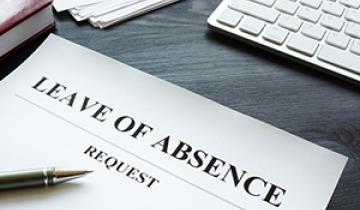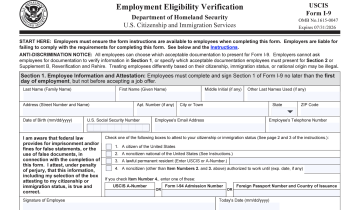On April 24, 2024, Chicago’s Department of Business Affairs and Consumer Protection published final rules for the city’s Paid Leave and Paid Sick and Safe Leave Ordinance. The ordinance allows employees to accrue up to 40 hours of Paid Sick Leave and 40 hours of Paid Leave, which can be used for any reason in a 12-month period. The rules provide much-needed clarity to the ordinance:
- The final rule allows employers to establish a 12-month period of their choosing. The designated period must consist of 12 consecutive months such as an employee’s anniversary year, a calendar year, or some other 12 consecutive month period.
- Employees may carry over up to 80 hours of Paid Sick Leave and 16 hours of Paid Leave into the next 12-month period. Employers who frontload 40 hours of Paid Leave are not subject to the carryover provision related to Paid Leave; however, frontloading of Paid Sick Leave does not relieve employers of the carryover requirement for Paid Sick Leave.
- Employers may require employees to seek preapproval for their use of Paid Leave. Per the final rules, denials should consider relevant factors such as:
“(A) Whether granting Paid Leave during a particular time-period would significantly impact business operations;
(B) Whether the Employer provides a need or service critical to the health, safety, or welfare of the people of Chicago.
(C) Whether similarly situated employees are treated the same for the purposes of reviewing, approving, and denying Paid Leave.
(D) Whether granting Paid Leave during a particular time-period would significantly impact business operations.
(E) Whether the Covered Employee has meaningful access to use all Paid Leave time the Covered Employee is entitled to use over the established Benefit Year. ‘Meaningful access’ means that a Covered Employee has a reasonable ability to utilize accrued Paid Leave and Paid Sick Leave. An example of a reasonable policy is one that allows a Covered Employee to take Paid Leave a Friday seven days from the request. But the policy can also say that the Covered Employee may not take Paid Leave that Friday if it is the busiest day of the Employer's year. An example of an over-restrictive policy is one that does not allow for the usage of Paid Leave on any day except for Tuesdays, Wednesdays, and Thursdays.
- The final rules included a new provision that allows employers to restrict the use of either Paid Leave or Paid Sick Leave to the employee’s regular work week.
- The ordinance rules do not include any exemptions for pre-existing paid leave policies.
- The rules provide guidance on calculating employees’ regular rate of pay when either type of leave is used.
- Several types of notification requirements are outlined, including:
- A workplace poster which can be found here.
- New hire notification due with the first paycheck, prior to the employee’s start, or as part of an onboarding process. A copy of the employer’s policies related to Paid Leave and Paid Sick Leave is also required.
- Annual frontloading notice (if applicable).
- Annual employee notification due with a paycheck issued within 30 days of July 1.
- Written Paid Leave and Paid Sick Leave policies that include advance notice procedures and information related to denial of Paid Leave.
- At least 5 calendar days’ written notice must be provided to employees before any change to paid leave policy requirements is implemented. Fourteen days’ advance written notice if a policy change will affect their final compensation for these leaves.
- Employers must provide a notification of available Paid Leave and Paid Sick to employees. Methods include listing amounts on check stubs, developing an electronic system that allows employees to access the information, or another method that provides the data.
As July 1 is approaching rapidly, employers are advised to develop their policies, systems, and programs related to compliance with the ordinance.






